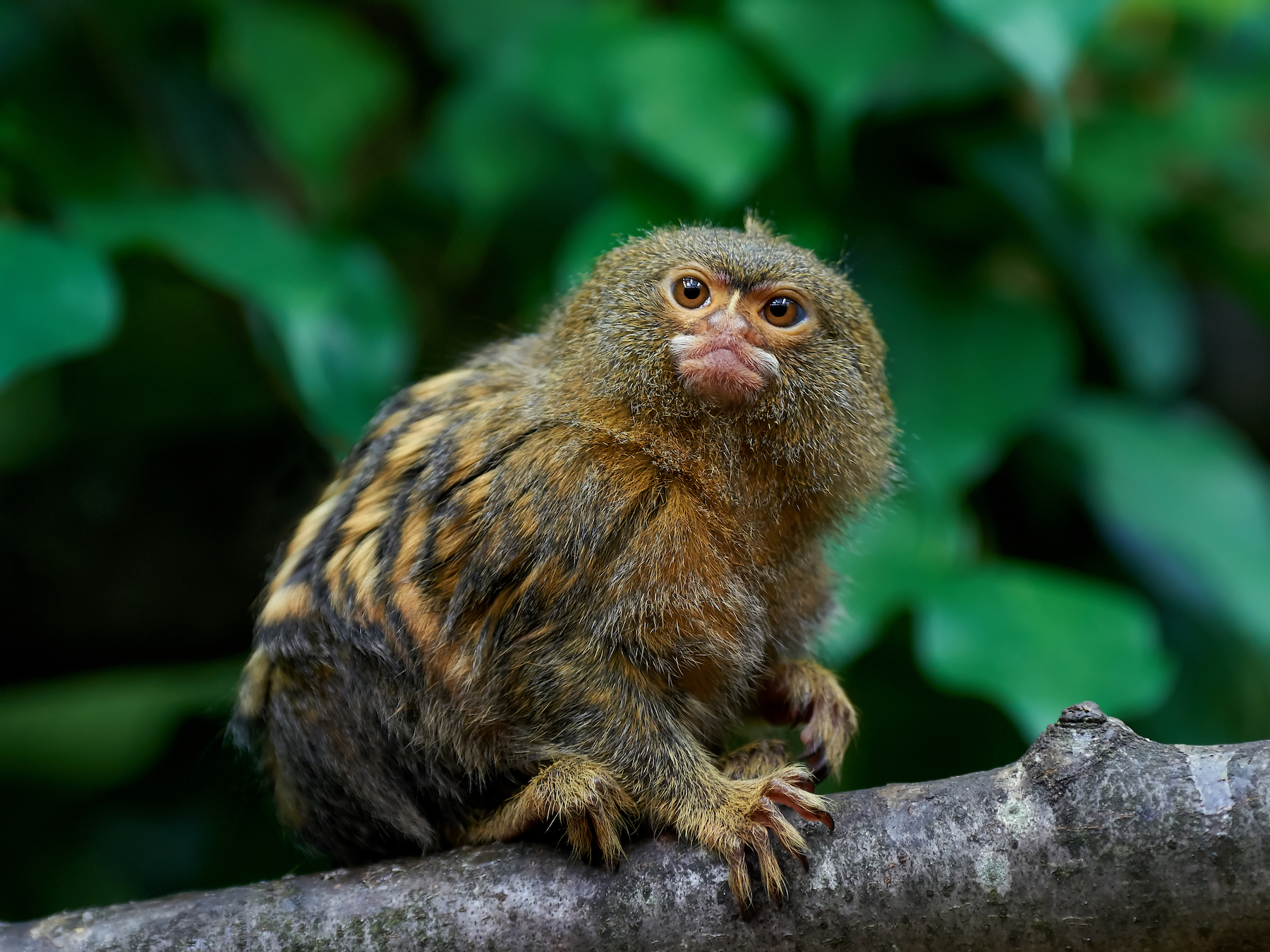
The world’s smallest monkeys are no longer a single species
Scientists at the University of Salford in England have discovered that the world’s smallest monkeys are members of two separate species rather than just one. According to the researchers, pygmy marmosets in northwest South America and south of the Amazon River split between two and three million years ago.
The tiny monkeys, which only weigh about four ounces on average, were first documented by German naturalist Johann Spix in 1823.
“There has long been confusion over the taxonomy of these wonderful creatures mostly because Spix did not record in his travel diaries the exact location where he collected the type of Cebuella pygmaea in the early 1800s,” said study lead author Jean Boubli.
“That creates confusion as to which of the two recently uncovered species should keep the original name: that of the north or of the south of the Amazon.”
When the research team sequenced the genomes of pygmy marmosets living in the Brazilian Amazon to gain insight into their evolutionary history, they found two distinct lineages. The study authors explained that further research will likely lead to the discovery of additional pygmy marmoset species in different regions.
“The team is now collecting more data, including feces, from different localities to clarify the taxonomy of pygmy marmosets and the geographic ranges of the two species already identified – and possibly even that of new ones,” said the researchers.
Conservationists believe that pygmy marmosets are in a vulnerable state that warrants protection. Efforts to protect the tiny monkeys will now be altered, considering that “population numbers essentially are halved when a species is suddenly split in two in the light of new scientific evidence.”
“Luckily for the pygmy marmosets, the forests where they are found are amongst the best-preserved patches of the Amazon,” wrote the study authors.
The research is published in the journal Molecular Phylogenetics and Evolution.
—
By Chrissy Sexton, Earth.com Staff Writer













